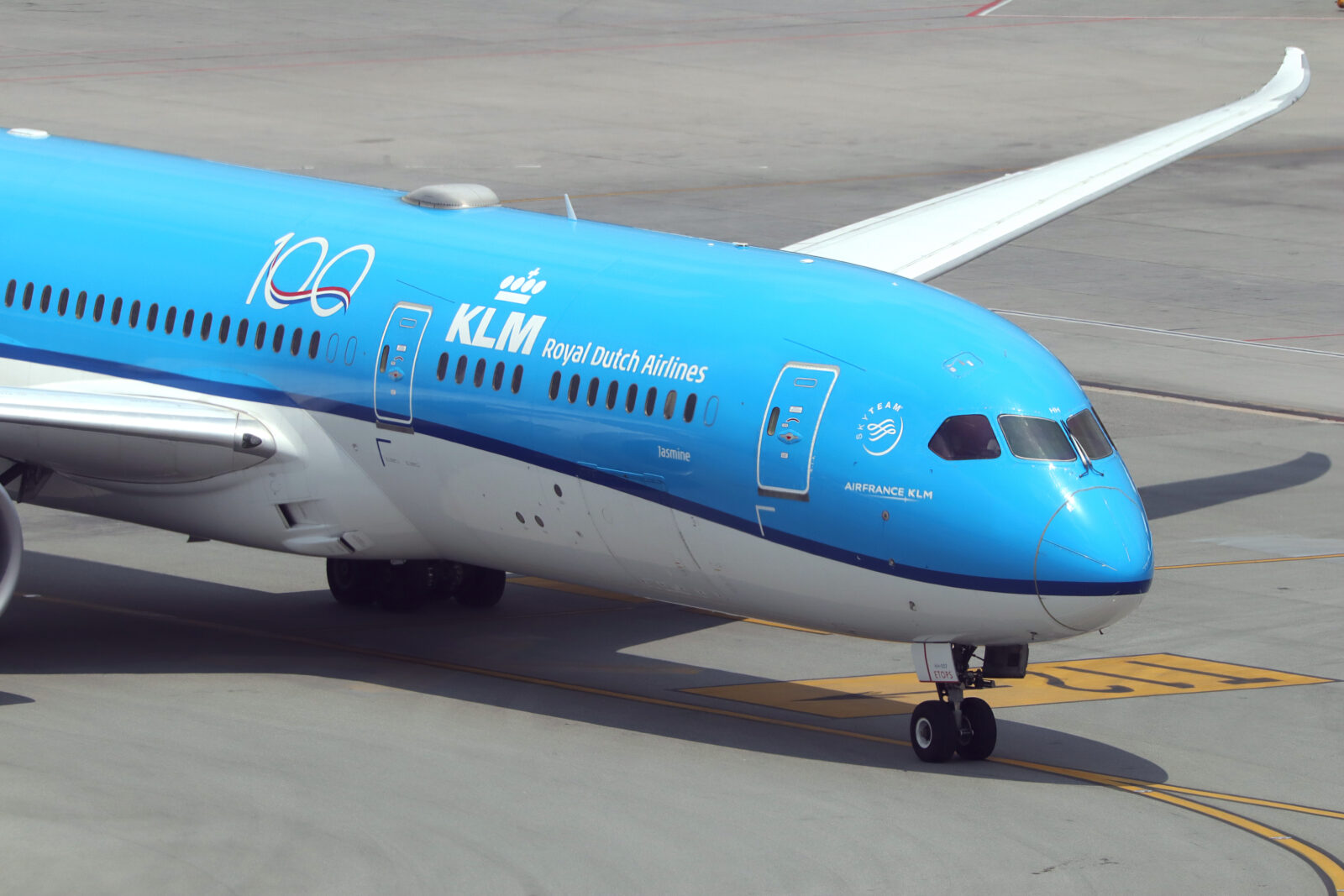
The Dutch flag carrier KLM fears the U.S. government could take “retaliatory countermeasures” against it over controversial plans to slash the number of flights that are allowed to take off and land at the airline’s Amsterdam Schiphol hub.
In a bid to reduce noise pollution around the airport, the Dutch caretaker government has drawn up ‘experimental’ legislation to cut the current flight cap from half a million a year to just 452,000 flight movements by next winter.
The U.S. Department of Transportation (DOT) is now probing the plan after JetBlue filed a formal complaint, alleging that the Dutch government was breaking its Open Skies agreement with the United States, which is meant to guarantee free and fair access for airlines from both countries.
JetBlue fears it will lose its valuable take-off and landing slots at Amsterdam as part of the capacity reduction and is calling on the DOT to respond by slapping Dutch airlines with a similar number of flight cuts to the United States.
In response to JetBlue’s complaint, KLM says it stands to be “impacted gravely” by the capacity cuts, as well as any countermeasures taken by other governments like the United States.
“KLM will not only have its flights reduced at AMS but now faces the possibility of US retaliation,” the airline said in response to the complaint. “Now is not the time for the Department to rush to implement retaliatory countermeasures,” the response continued.
In fact, KLM says it has been “at the forefront of the legal challenge to the actions by the Dutch Government to reduce capacity at AMS” and was a joint complainant with JetBlue in a legal challenge against its own government.
An initial court victory for KLM was overturned by an appeals court, although it is pursuing the case in the Dutch Supreme Court.
KLM’s argument rests on the so-called ‘Balanced Approach’ framework, which states that flight cuts should only be imposed as a last resort after other methods to reduce noise pollution have been tried.
The airline industry says it can reduce noise and emissions pollution around Schiphol by investing in new, more sustainable aircraft, adopting smarter flight plans and schedules and repurposing land around the airport.
“It would be grossly unfair to penalize KLM for the actions of the Dutch Government through the draconian countermeasures suggested by JetBlue,” the airline said on Friday.
“There is no justification for punishing KLM since it has not instigated and will not benefit from the reductions to be imposed by the Dutch Government,” the airline’s response continued.
The DOT has requested feedback from across the aviation industry and has so far heard from a number of major players, including American Airlines, which also fears it will be negatively impacted by the Dutch government’s plans.
American Airlines and industry trade group Airlines for America has called on the U.S. DOT to engage with the Dutch government and European Commission but has not gone so far as to demand retaliatory measures.
Related
Mateusz Maszczynski honed his skills as an international flight attendant at the most prominent airline in the Middle East and has been flying ever since... most recently for a well known European airline. Matt is passionate about the aviation industry and has become an expert in passenger experience and human-centric stories. Always keeping an ear close to the ground, Matt's industry insights, analysis and news coverage is frequently relied upon by some of the biggest names in journalism.








AMS must abide by the Open Skies agreement. Plus DL & KLM have antitrust immunity so they must make sure that Jetblue has slots.
Sure, the Dutch gov’t is being impossible because they hate airports, but they cannot just remove slots from US carriers.